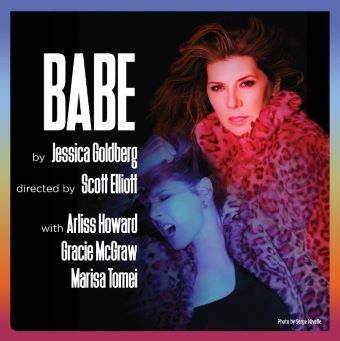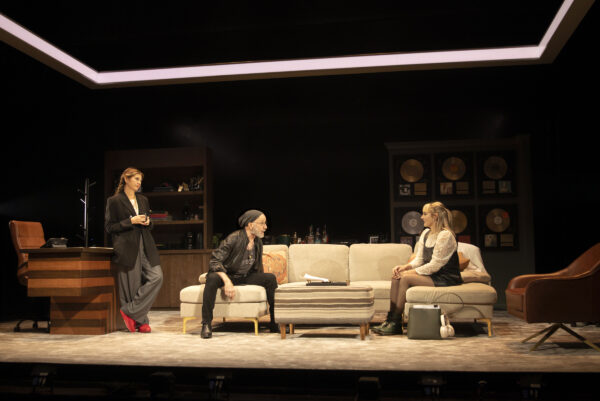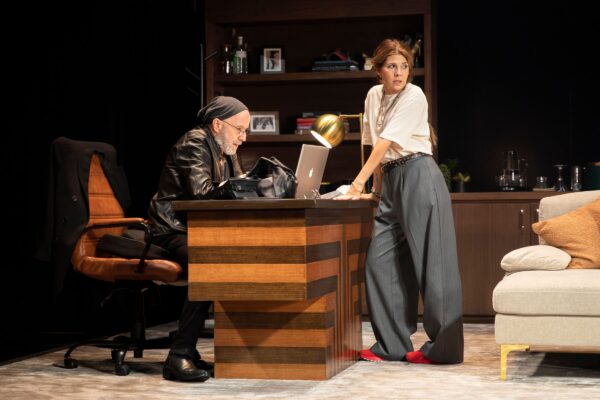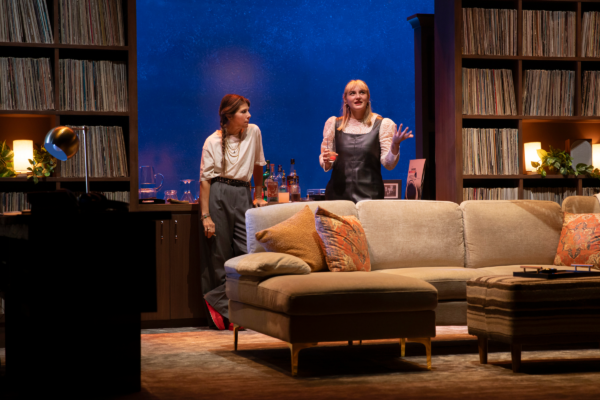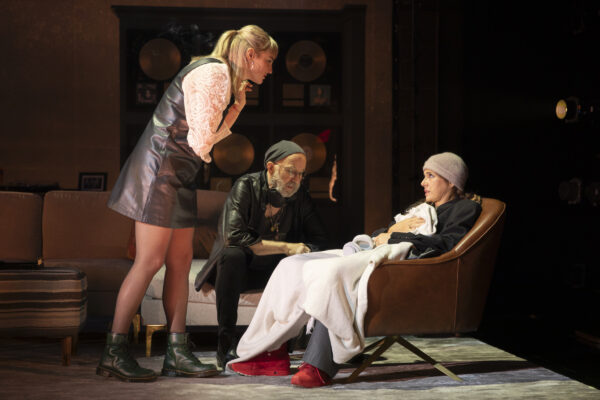A GENERATIONAL GAP AND A PLAYWRITING GAP
As a result of the #MeToo movement, there has been much brought to light about women working in America. But here’s a note to the younger generations about life for women in the 80s: if you were homosexual, you were considered a pervert and treated as such; when someone like Cheryl Araujo was gang raped publicly, the message was “she asked for it”; nearly every decent career was destined to a white “dude”; and women made half of what some guy got doing the same job (if we were lucky or rich or connected enough to get it).
When we finally landed a good job, micro-aggressions were the norm, like being jokingly belittled; asked to make and deliver coffee; and being called “honey”, “sweetie”, and “baby-girl” by a superior — certainly not a hill we wanted to die for. There were also bigger problems to fight for at work: sexual abuse, intellectual theft, unpaid overwork, and even fighting the many women who rowed against change and justified the abusive boss, the rapist, the violent husband, the homophobic killer, women who enabled the wicked patriarchy. Each generation fights to get human rights, one step at the time, in an uphill, complicated and dangerous climb, and, to me, there are no gaps.
I wrote this long intro because Jessica Goldberg‘s Babe, which opened tonight at The Pershing Square Signature Center, unwittingly makes female Baby Boomers look like masochists and the inquisitive Gen Z women just seem seriously dumb, creating a useless gap. We are in the office of a famous music producer — Gus, who made his fortune in the early 90s — and his long time assistant Abby, both dealing with the new generation of employees represented by Katherine, an A&R (Artists and Repertoire) rep who just started scouting for them. She is in her twenties and she rightfully expects a welcoming, safe environment at work, but Gus is the typical good Boomer; he means well but doesn’t realize when he is sexist, insulting, or dismissive of women intellect.
Themes of women in the workplace, cancel culture and generational divide fall flat. Goldberg and director Scott Elliot seem content to make the evening more of a corporation sensitivity training exercise than a play. Babe fails to teach us anything on the generational differences among women, underlining the forever civil war within the gender but not offering answers.
Abby never seems to be really working for a corporation, worried mostly about catering to Gus-the-child. Additionally, the writer gives her a serious disease, completely unrealistic and unnecessary as there is already a tragic back-story in the plot.
The great Marisa Tomei is Abby; she looks fantastic but oddly behaved as if she was constantly high, swaying left and right, smiling and being coy for no reason. In order to show the compromises she has to make, Scott Elliot‘s sloppy direction turns her role into a mother figure who loves unconditionally, not realizing the boss-child has been abusing her throughout, a character choice which annihilates the brilliancy that made her a great music producer. Between the direction and the writing, you can’t help but feel cynical about the character of Abby.
Gracie McGraw, like Tomei, did her best with the material she had as Katherine, coming off like a spoiled ungrateful child more than a thinking individual from Gen Z. She constantly complains about the office sexist atmosphere but then she asks Abby, her boss, if she ever had sex with a famous star they represented, or with Gus to get the job. Katherine heavily flirts with Abby, even trying to kiss her, all without any problems — as if “sensitivity” only went one way. Does Abby react? No, her rebuts are justifications more than explanations, she mothers Katharine as she did Gus, hence Tomei’s peculiar acting — she doesn’t have a coherent role. Instead of fighting back with some kind of penetrating dialogue, she takes abuse, disease, and backstabbing from everybody like a Saint, getting her aureole at the end, as if the sufferance finally paid back.
Arliss Howard played Gus and he was so realistic in the role I often forgot he was acting. Costume designer Jeff Mahshie also gave him the perfect garb that screamed “music producer from the 90s” to better the illusion. Scenic design by Derek McLane, lights by Cha See, and sound by Jessica Paz created the proper environment, but the play misses the opportunity to delve differently into the clash between the younger woman who desires safe spaces and immediate results, and the older woman who has struggled to just get in the door and now suffers with the current regime, hoping to change things slowly. Here, the play goes by slowly, but nothing changes.
photos by Monique Carboni
Babe
The New Group
Alice Griffin Jewel Box Theater
Pershing Square Signature Center, 480 West 42nd St
90 minutes, no intermission
ends on December 17, 2023
for tickets, visit The New Group
